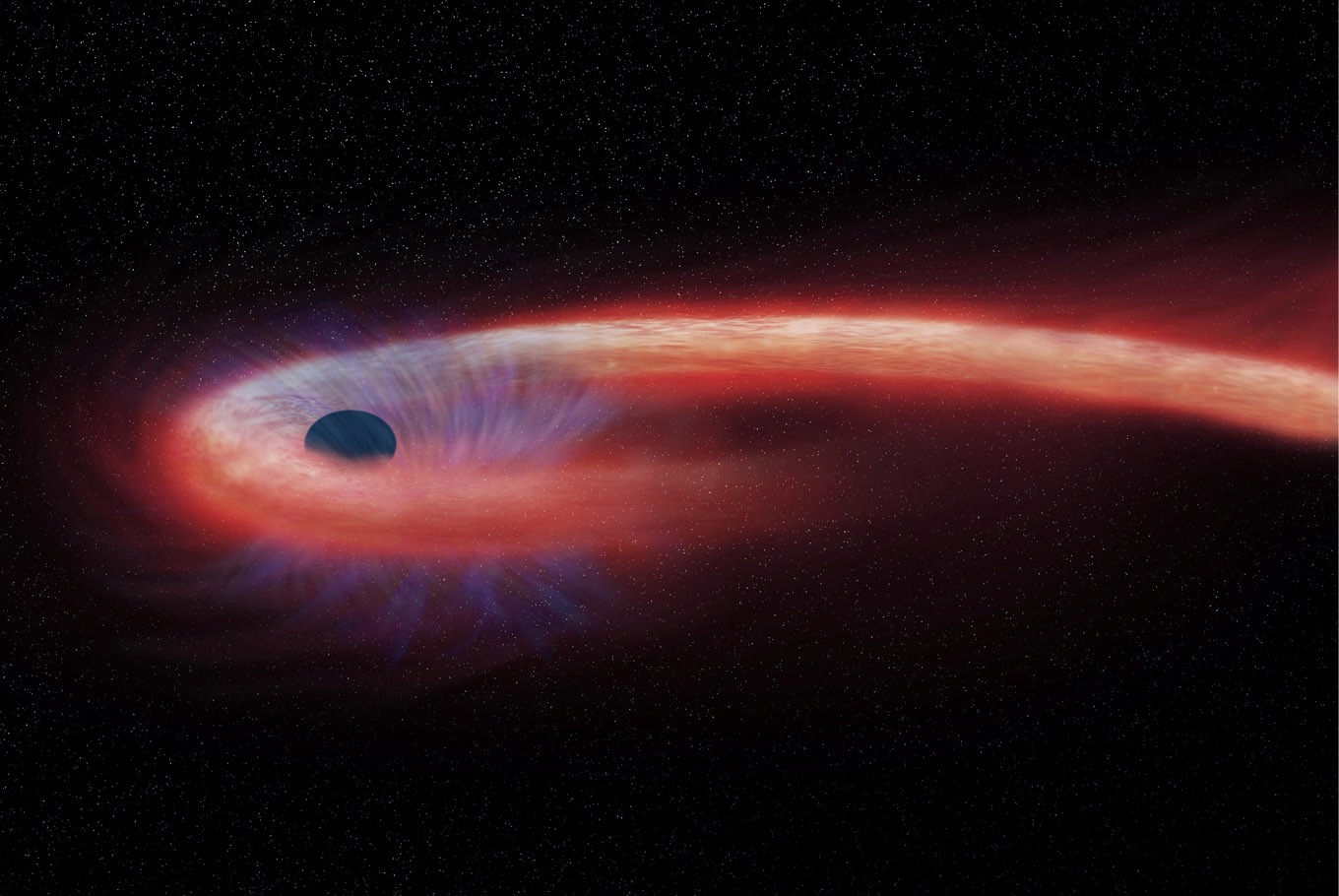Popular Reads
Top Results
Can't find what you're looking for?
View all search resultsPopular Reads
Top Results
Can't find what you're looking for?
View all search resultsBinge Eater: Black hole taking over decade to devour star
Change text size
Gift Premium Articles
to Anyone
 This artist rendering provided by NASA shows a star being swallowed by a black hole, and emitting an X-ray flare, shown in red, in the process. A new study published Monday, Feb. 6, 2017, in the journal Nature Astronomy details a black hole that's taken a record-breaking decade to devour a star 1.8 billion light-years from Earth. (NASA/Chandra X-ray Observatory/M.Weiss via AP/File)
This artist rendering provided by NASA shows a star being swallowed by a black hole, and emitting an X-ray flare, shown in red, in the process. A new study published Monday, Feb. 6, 2017, in the journal Nature Astronomy details a black hole that's taken a record-breaking decade to devour a star 1.8 billion light-years from Earth. (NASA/Chandra X-ray Observatory/M.Weiss via AP/File)
S
cientists have detected a black hole that's taken a record-breaking decade to devour a star — and it's still chewing away.
The food fest is happening in a small galaxy 1.8 billion light-years from Earth.
University of New Hampshire research scientist Dacheng (dah-CHENG) Lin said that black hole feeding frenzies have been observed since the 1990s, but they've lasted just a year. At 11 years and counting, this is the longest known one yet.
Lin and his team used data from orbiting X-ray telescopes to study the monstrous munching. X-ray flares erupt when a star gets swallowed by a black hole and cooked millions of degrees. Black holes clearly like their stars well done.
Read also: Will artificial companions be our best friend in the future?
"We have witnessed a star's spectacular and prolonged demise," Lin said in a statement.
The X-rays coming from this black hole surpass expectations in another way.
"For most of the time we've been looking at this object, it has been growing rapidly," said the Harvard-Smithsonian Center for Astrophysics' James Guillochon, a co-author. "This tells us something unusual — like a star twice as heavy as our Sun — is being fed into the black hole."
The binge eating by this particular black hole began around July 2005. Based on computer models, the feasting should taper off over the next decade.
The discovery was reported Monday in the journal Nature Astronomy.










